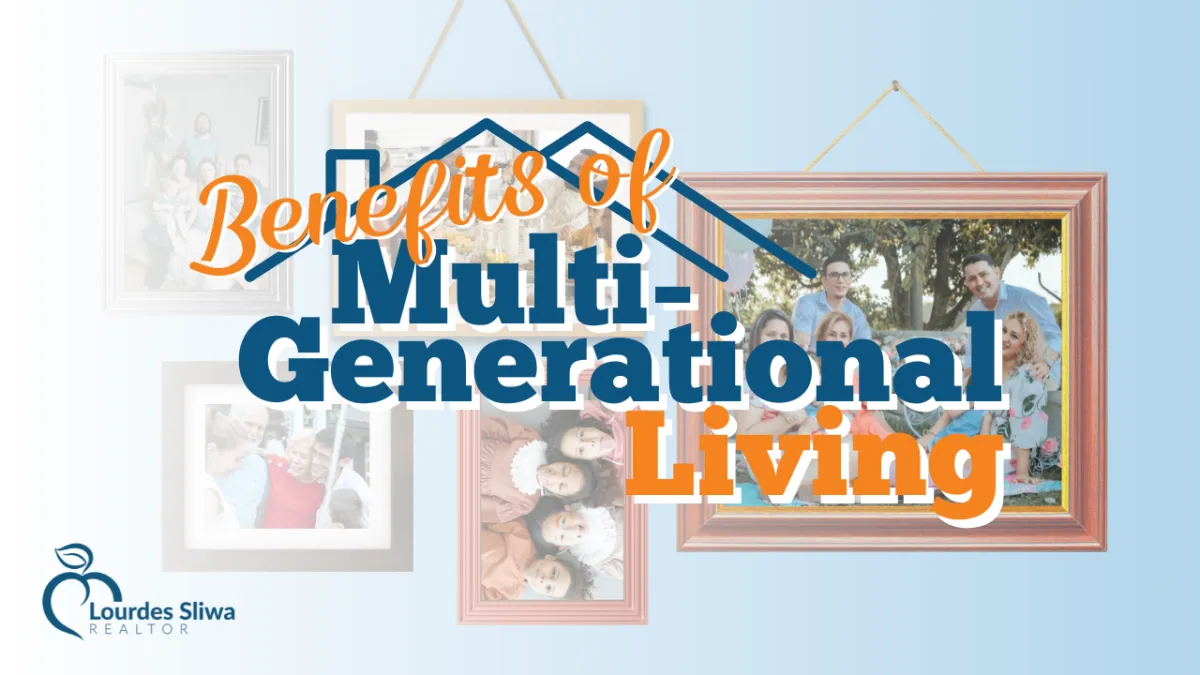BLOG

Benefits and Considerations of Multi Generational Living
Benefits and Considerations of Multi-Generational Living
Introduction
Multi-generational living, a concept that involves multiple generations living under the same roof, has gained significant popularity in recent years. This article explores the various benefits and considerations associated with multi-generational living arrangements. We will delve into the financial advantages, emotional support, shared responsibilities, and more. If you're considering multi-generational living, read on to understand its advantages and factors to consider.
Benefits of Multi-Generational Living
Financial Advantages
Living together as multiple generations can provide financial benefits for everyone involved. By pooling resources, families can share expenses such as mortgage payments, utility bills, and groceries. This can result in substantial savings and financial stability for all family members.
Emotional Support
One of the significant advantages of multi-generational living is the built-in emotional support system. Having family members from different generations living together creates a strong support network. During challenging times or important life events, the presence and guidance of multiple generations can provide a sense of security and reassurance.
Shared Responsibilities
In a multi-generational household, responsibilities are often shared among family members. This can alleviate the burden of household chores, childcare, and eldercare. The distribution of tasks promotes a sense of teamwork, allowing each generation to contribute their skills and expertise.
Considerations for Multi-Generational Living
Space and Privacy
One of the key considerations in multi-generational living is ensuring adequate space and privacy for each family member. Balancing shared spaces and private areas is crucial to maintaining harmony within the household. Thoughtful design and layout considerations can help create a functional living space that respects individual privacy.
Communication and Boundaries
Effective communication and clear boundaries are essential for successful multi-generational living. Open dialogue, active listening, and mutual respect foster healthy relationships among family members. Establishing ground rules and discussing expectations can minimize misunderstandings and conflicts.
Lifestyle Differences
Each generation may have different lifestyles, routines, and preferences. Understanding and embracing these differences is vital for harmonious coexistence. Flexibility, compromise, and empathy allow family members to appreciate and accommodate each other's unique needs and preferences.
Creating a Multi-Generational Living Space
Designing a multi-generational living space requires careful consideration of various factors. Here are some key considerations to keep in mind:
Design and Layout Considerations
Creating a functional living space involves designing separate living areas or wings, ensuring accessibility, and accommodating the specific needs of different generations. Thoughtful design can enhance interaction and facilitate a sense of togetherness while providing individual spaces.
Flexibility and Accessibility
Designing a multi-generational living space should prioritize flexibility and accessibility. Incorporating features such as wide hallways, non-slip flooring, and accessible bathrooms ensures that the space can adapt to the changing needs of family members of all ages.
Private and Shared Areas
Balancing private and shared spaces is crucial. Allowing family members to have their private areas while also providing common areas for shared activities and quality time fosters a healthy balance between personal space and togetherness.
Successful Coexistence in a Multi-Generational Household
For multi-generational living to thrive, certain considerations can contribute to successful coexistence:
Effective Communication
Maintaining open lines of communication is key to resolving conflicts and nurturing strong relationships. Regular family meetings, sharing thoughts and concerns, and actively listening to each other can strengthen bonds and prevent misunderstandings.
Establishing Ground Rules
Establishing clear ground rules and expectations helps create a harmonious living environment. By setting boundaries and discussing responsibilities upfront, family members can navigate daily life with greater ease and mutual respect.
Respecting Individual Needs
Recognizing and respecting the individual needs of each family member is essential. Whether it's personal space, cultural practices, or dietary preferences, valuing and accommodating these needs fosters an inclusive and supportive environment.
Financial Implications
Shared Expenses
Sharing living expenses among family members can significantly reduce the financial burden for everyone. Splitting bills, mortgage payments, and other costs can free up resources for other essential needs or savings.
Potential Savings
Multi-generational living can lead to substantial savings over time. By sharing resources, families can save on housing costs, childcare expenses, and other day-to-day expenditures. These savings can be directed towards savings accounts, education funds, or investments.
Estate Planning
Multi-generational living may also impact estate planning. It's important to consider how assets and inheritances will be distributed among family members. Seeking professional guidance in estate planning can help ensure a smooth transition of wealth and assets across generations.
Emotional Well-being in Multi-Generational Living
Strengthening Family Bonds
Living together with multiple generations provides ample opportunities for strengthening family bonds. Regular interactions, shared experiences, and mutual support contribute to a strong sense of belonging and connectedness.
Supportive Environment
Multi-generational living offers a supportive environment where family members can rely on each other for emotional well-being. The presence of older generations can provide wisdom, guidance, and a sense of security for younger family members.
Learning from Different Generations
Living with multiple generations allows for valuable intergenerational learning experiences. Younger family members can learn from the wisdom and life experiences of older generations, fostering personal growth, empathy, and a broader perspective.
Challenges and Solutions
Generation Gap
One of the challenges in multi-generational living is navigating the generation gap. Differences in values, attitudes, and lifestyles can sometimes lead to conflicts. Open and respectful communication, willingness to understand each other's perspectives, and finding common ground can bridge this gap.
Conflict Resolution
Conflicts may arise in any living situation, including multi-generational households. Addressing conflicts promptly, employing active listening, and seeking compromise are vital in resolving issues and maintaining a harmonious environment.
Flexibility and Adaptability
Flexibility and adaptability are key traits for all family members in multi-generational living. Embracing change, being open to new ideas, and adjusting expectations contribute to a positive and dynamic living environment.
Conclusion
Multi-generational living offers numerous benefits, including financial advantages, emotional support, shared responsibilities, and the opportunity to strengthen family bonds. However, it also requires careful consideration of space, communication, and respecting individual needs. By creating a supportive and inclusive environment, multi-generational living can enrich the lives of all family members and create lasting memories.
FAQs (Frequently Asked Questions)
1. Is multi-generational living suitable for every family? Multi-generational living may not be suitable for every family, as it depends on individual circumstances and preferences. Factors such as space availability, family dynamics, and cultural considerations should be taken into account when considering this arrangement.
2. What are some tips for successful communication in a multi-generational household? Effective communication in a multi-generational household involves active listening, empathy, and establishing regular channels for dialogue. Family meetings, open discussions, and creating a safe space for sharing thoughts and concerns can foster healthy communication.
3. How can privacy be maintained in a multi-generational living arrangement? Maintaining privacy in a multi-generational living arrangement requires thoughtful design and clear boundaries. Allocating private spaces for each family member and establishing guidelines for privacy and personal time can help strike a balance between togetherness and individual needs.
4. Are there any tax benefits associated with multi-generational living? Tax benefits related to multi-generational living can vary based on local regulations and individual circumstances. Consulting with a tax professional can provide insight into any potential tax advantages or considerations in your specific location.
5. Can multi-generational living contribute to intergenerational learning? Absolutely! Multi-generational living provides an ideal environment for intergenerational learning. Younger family members can learn from the experiences, wisdom, and skills of older generations, fostering personal growth and creating meaningful connections.
Remember, multi-generational living is a personal choice that should align with the values and needs of your family. Assessing the benefits, considering the challenges, and discussing expectations with all family members can help you make an informed decision.
GET IN TOUCH!
GET IN TOUCH!
2825 Business Center Blvd., Suite A-1, Melbourne, FL 32940
Telephone : +1 (321) 960-3547
Web : lourdessliwa.com
Email: [email protected]
Follow us!
Follow us!
© 2024 | Avanti Way Space Coast. Privacy Policy

